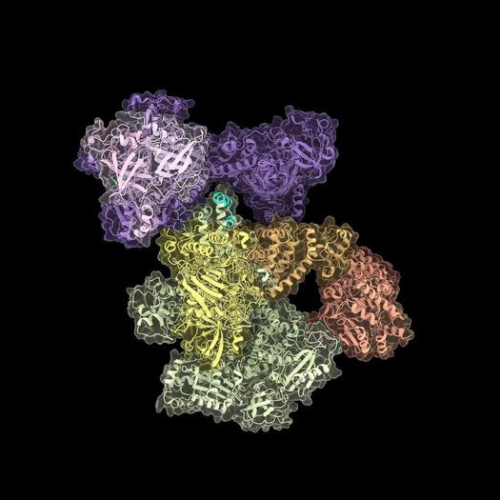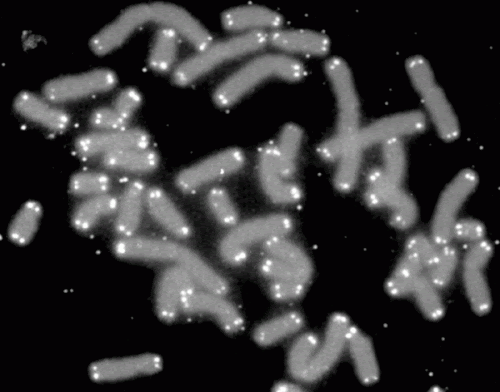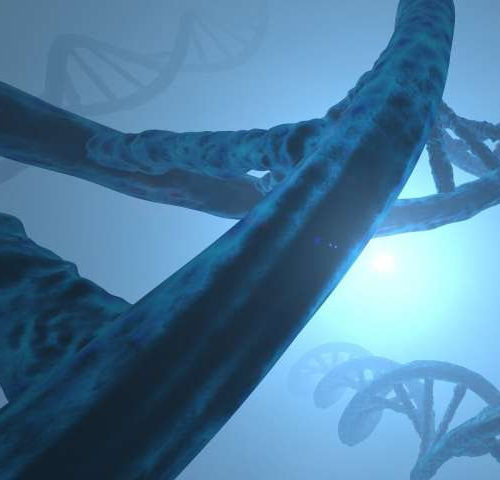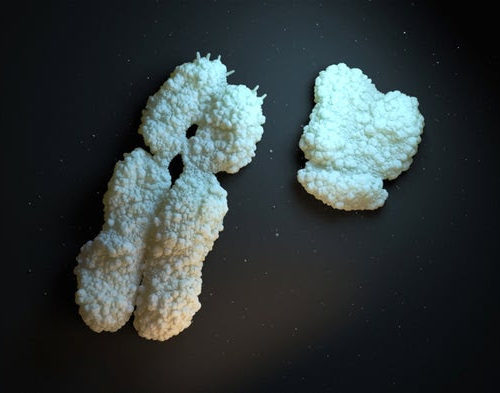Peer-Reviewed Publication ROCKEFELLER UNIVERSITY CST–Polα/primasE, THE ENZYME THAT SOLVES THE NEWLY DISCOVERED END-REPLICATION PROBLEM CREDIT: CREDIT SARAH CAI Double Trouble at Chromosome Ends Half a century ago, scientists Jim Watson and Alexey Olovnikov independently realized that there was a problem with how our DNA gets copied. A quirk of linear DNA replication dictated that telomeres...
Tag: <span>chromosomes</span>
A 20-year study may upend long-held theory about chromosomes and cancer
by Johns Hopkins University School of Medicine Illustration of the link between short telomeres and squamous cancer. Credit: Jennifer Fairman Johns Hopkins Medicine scientists say their 20-year study of more than 200 people with premature aging syndromes caused by abnormally short telomeres, or shortened repetitive DNA sequences at the ends of chromosomes, may upend long-held scientific...
Telomere length varies across human tissue types
by University of Chicago Medical Center Human chromosomes (grey) capped by telomeres (white). Credit: PD-NASA; PD-USGOV-NASA Telomere length has long been considered an important biomarker in human aging and disease, but most studies on the relationship between telomere length and health have looked only in a single tissue type: blood. This limitation has raised the question...
Female chromosomes offer resilience to Alzheimer’s
by University of California, San Francisco Women with Alzheimer’s live longer than men with the disease, and scientists at UC San Francisco now have evidence from research in both humans and mice that this is because they have genetic protection from the ravages of the disease. By virtue of having a second X chromosome, women...
Identifying Alzheimer’s risk factors in young people
Interview conducted by Emily Henderson, B.Sc. News-Medical speaks to Dr. Keith Fargo from the Alzheimer’s association about their latest research which looked at risk factors that could aid in the early detection of Alzheimer’s disease. Why is it important to research Alzheimer’s and its risk factors? Alzheimer’s is a huge problem. It is a fatal...
Proteins — and labs — coming together to prevent Rett syndrome
This news or article is intended for readers with certain scientific or professional knowledge in the field. Disruption of condensates in the neurodevelopmental disorder provides insights into how cells compartmentalize chromosomes, as well as new potential therapies. New discoveries about the disruption of condensates in the neurodevelopmental disorder Rett syndrome provide insights into how cells...
New Clues in Resistance to Mainstay Drug for Patients with Metastatic Prostate Cancer
This news or article is intended for readers with certain scientific or professional knowledge in the field. Enzalutamide is one of the main treatments for patients with metastatic, castration-resistant prostate cancer — the lethal form of the disease. However, treatment options are limited for those who develop resistance to enzalutamide. Now, a multi-institution team has...
Study shows highly reproducible sex differences in aspects of human brain anatomy
by National Institutes of Health A scientific analysis of more than 2,000 brain scans found evidence for highly reproducible sex differences in the volume of certain regions in the human brain. This pattern of sex-based differences in brain volume corresponds with patterns of sex-chromosome gene expression observed in postmortem samples from the brain’s cortex, suggesting...
Turning off “junk DNA” may free stem cells to become neurons
For every cell in the body there comes a time when it must decide what it wants to do for the rest of its life. In an article published in the journal PNAS, National Institutes of Health researchers report for the first time that ancient viral genes that were once considered “junk DNA” may play...
CRISPR Gene Editing in Human Embryos Wreaks Chromosome Mayhem
By Heidi Ledford, Nature magazine on June 25, 2020 A suite of experiments that use the gene-editing tool CRISPR–Cas9 to modify human embryos have revealed how the process can make large, unwanted changes to the genome at or near the target site. The studies were published this month on the preprint server bioRxiv, and have...
- 1
- 2









